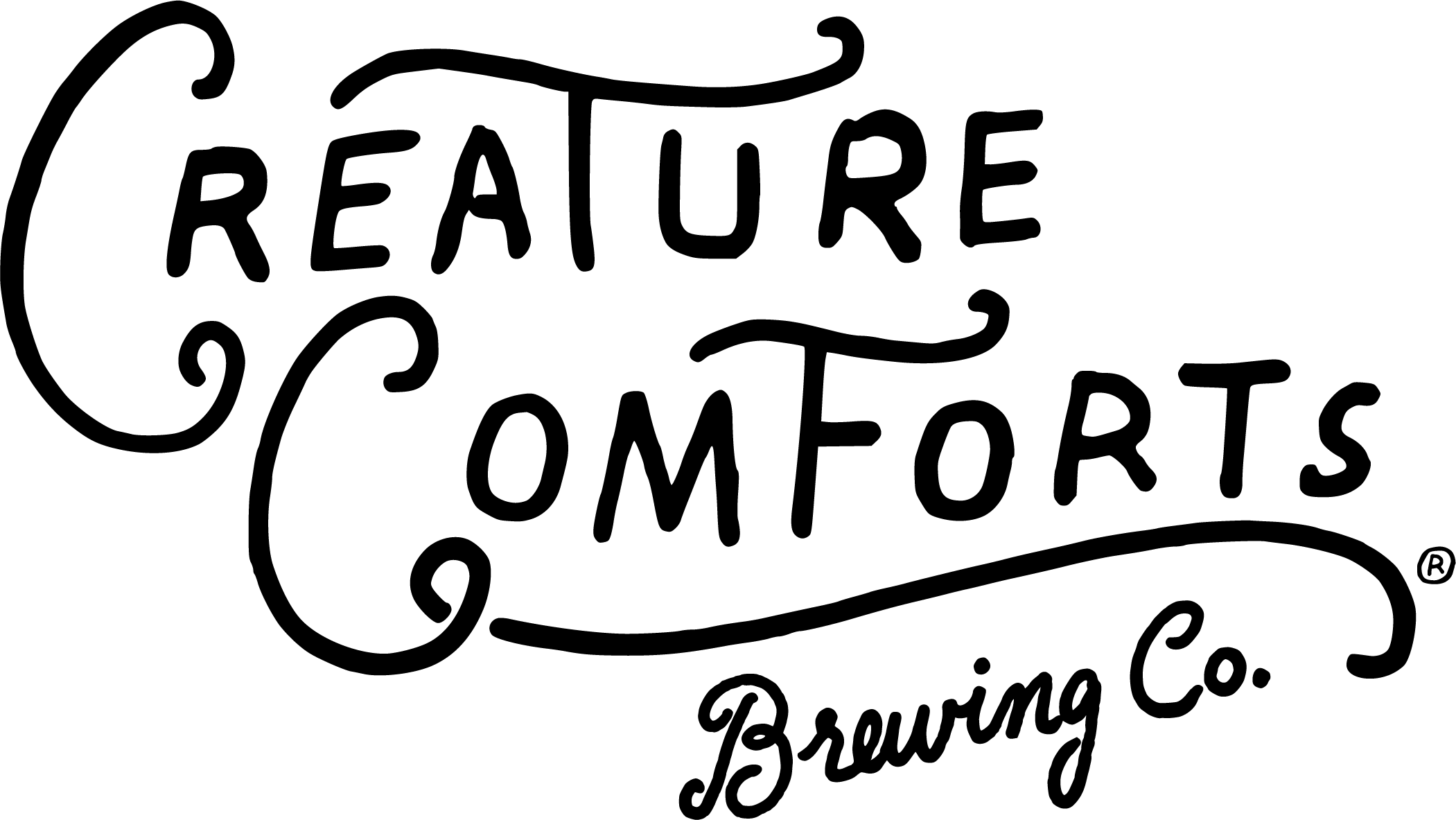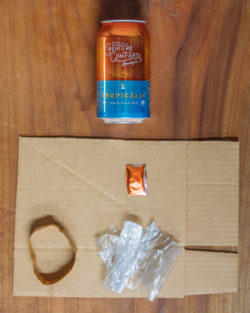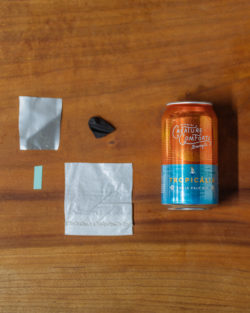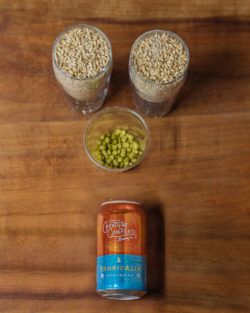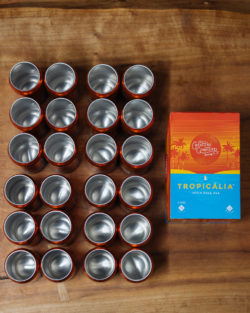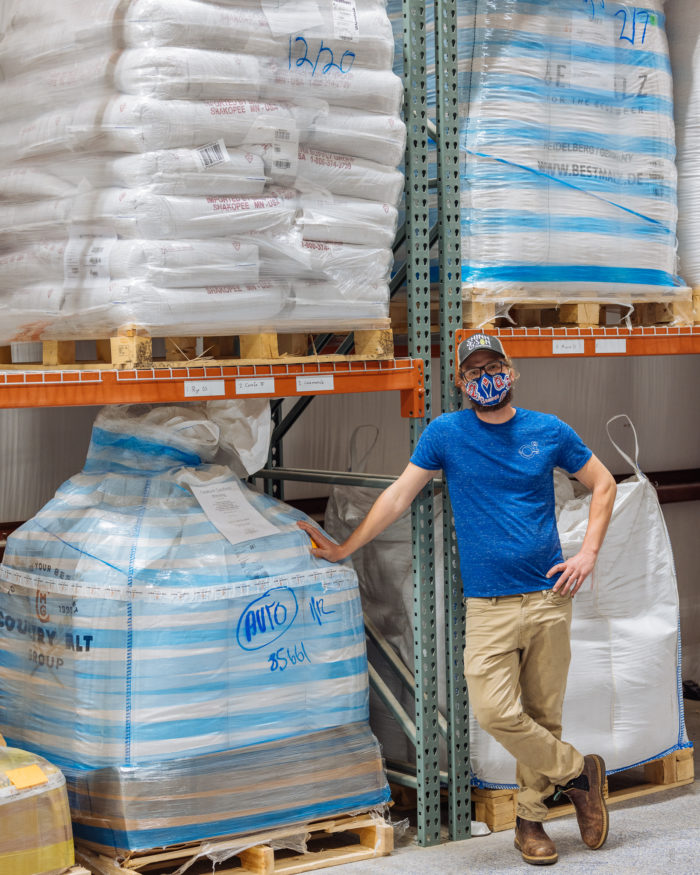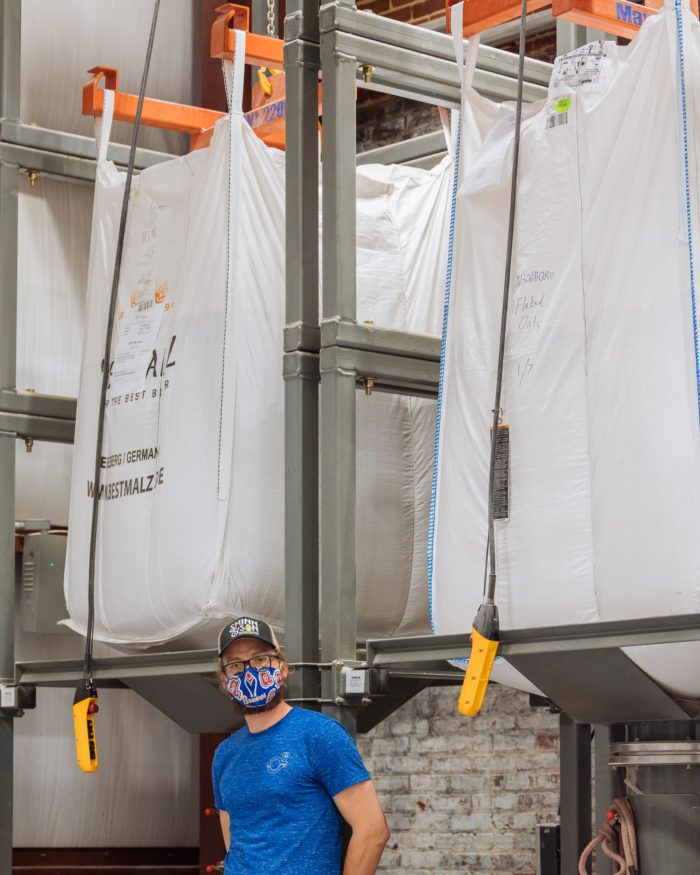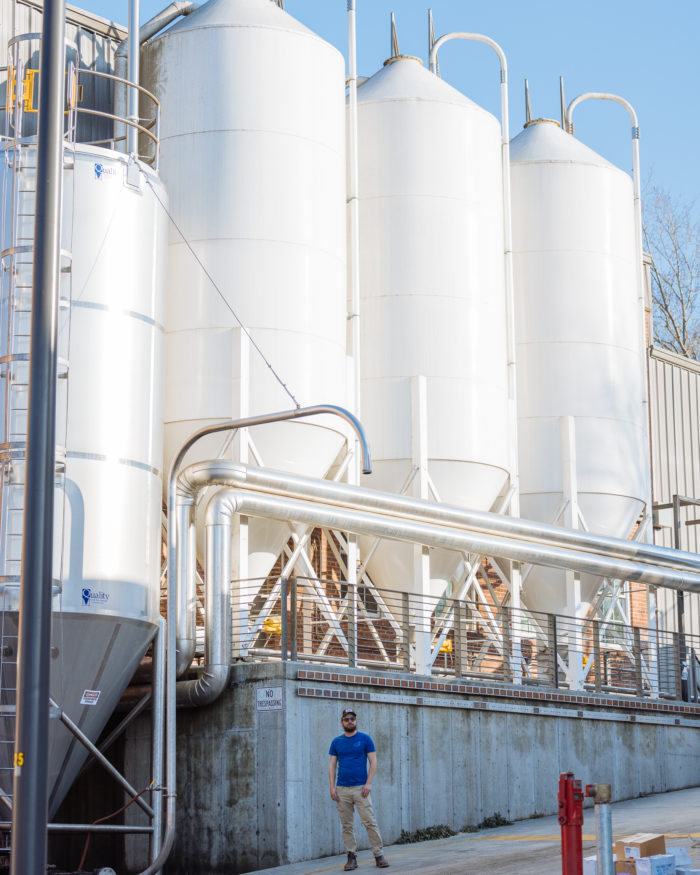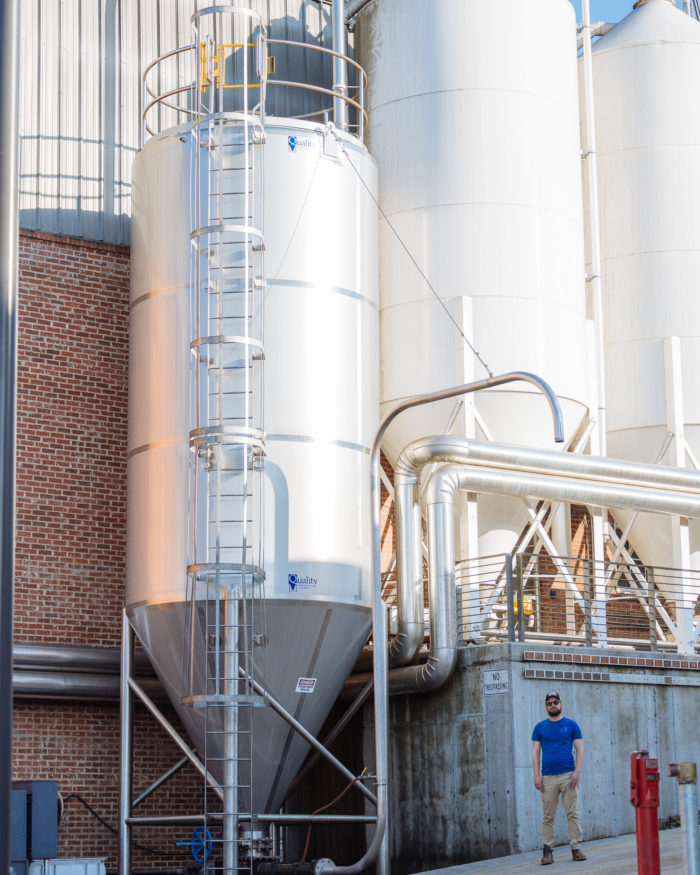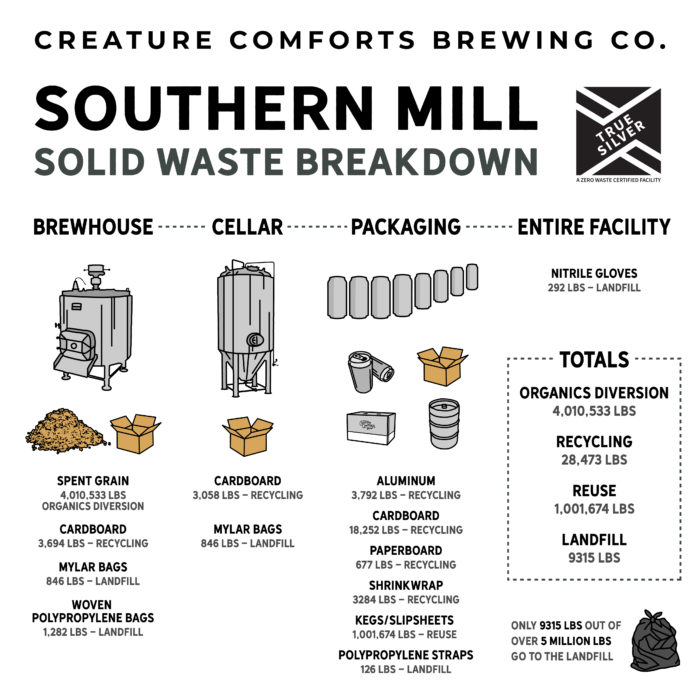Southern Mill Awarded TRUE Silver Certification by Green Business Certification Inc. for Zero Waste Efforts
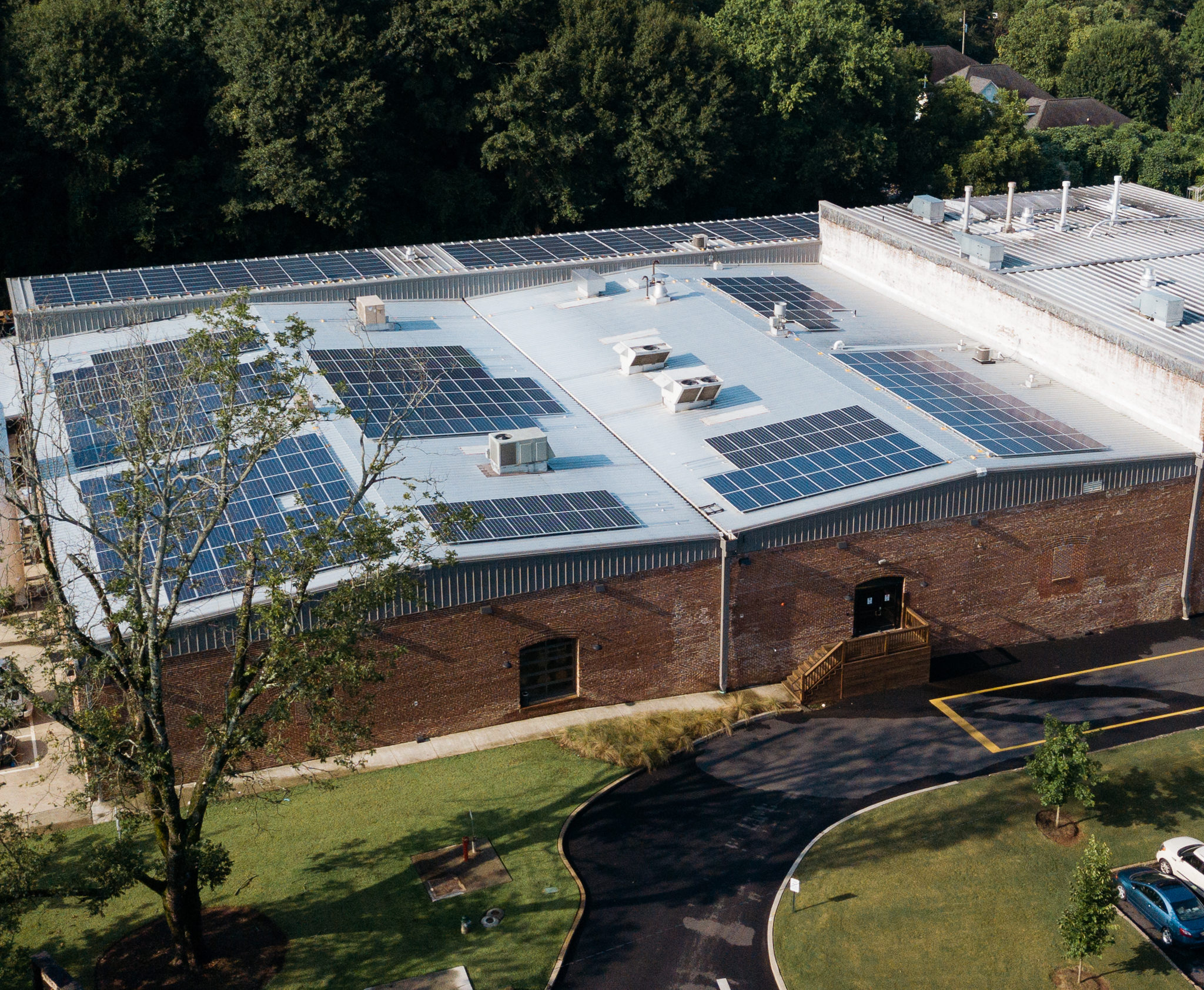
We are thrilled to share we received TRUE (Total Resource Use and Efficiency) Silver Level Certification for our Southern Mill facility’s zero waste efforts earlier this year! Administered by Green Business Certification Inc. (GBCI), TRUE helps facilities measure, improve, and recognize zero waste performance by encouraging the adoption of sustainable waste management and reduction practices, which contribute to positive environmental, health, and economic outcomes.
- Recyclable material from each 6-pack of Tropicalia produced
- Waste from each 6-pack of Tropicalia. The wastes are (from top L to bottom R) Mylar from hop bags, a nitrile glove, polypropylene strap, and woven polypropylene grain bags
- Grain and hops used per 6-pack
- Water used for each 6-pack – empty cans represent the water volume used
Our production facility located at Southern Mill achieved a 99.8% diversion rate, with less than one percent of waste material generated in our operations heading to a landfill. Out of 5 million pounds of waste material generated, slightly over 9,000 pounds went to landfills. Several waste-reduction practices we’ve incorporated since opening the facility in 2018 made it eligible for the certification, including:
- A spent grain silo which enabled the brewery to process over 4,000,000 pounds of grain into livestock feed
- Separate collection of hard-to-recycle stretch film plastic delivered to CHaRM (Center for Hard to Recycle Materials) monthly
- Minimal amount of waste associated with input materials
- Ongoing composting efforts
- This is a 2,000lb “supersack” of specialty grain. The word “Auto” is written on it to indicate that it’s a mixture of specialty grain specifically used to brew Automatic – by working with Country Malt Group, we’re able to get one of these mixed supersacks instead of 35-40 bags.
- This photo shows the crane / gantry system that lets us use these supersacks that limit polypropylene waste.
Waste affects every part of our communities and effective waste management strategies are critical to ensuring both public and environmental health. By pursuing TRUE certification, Creature Comforts Brewing Co. demonstrates a commitment to sustainability leadership by shifting to circular thinking and prioritizing processes, operations, and actions to reduce waste and resources throughout our system lifecycle.
- Pictured here, our grain silos which greatly reduce the amount of plastic waste generated by the brewing process. We can fill these directly from a grain truck without any waste generated.
- Pictured here is our spent grain silo. Spent grain is our largest waste material by far, and we collect it here in the spent grain silo to make pick-up easier. This spent grain becomes feed supplement for livestock.
We asked our Sustainability Manager Jacob Yarbrough to share more about the certification process and our sustainability efforts. Read on to learn more!
Why did the sustainability program want to pursue this certification? How does it fit into the program’s overall goals?
TRUE Zero Waste certification is the best available – they work under the umbrella of the Green Business Certificate, Inc. which administers LEED certification. Other breweries we greatly respect like New Belgium, Sierra Nevada, and more are also TRUE Zero Waste Certified.
We think that good businesses are good neighbors – not just in our philanthropic efforts with Get Comfortable but also in our impact from our operations on our local environment. Getting Zero Waste certified means that we’re putting less pressure on our local solid waste department, which makes us a better neighbor in our community.
Can you tell us more about the certification process?
Zero Waste certification asks businesses to look at many different aspects of their operations – from recycling data to redesigning existing systems to minimize waste generation. We were able to recognize which tasks were easy to achieve and which were more challenging – we wanted to use the certification process to recognize the good work we were already doing – separating hard to recycle materials for CHaRM, sending used grain to livestock farms, etc – while using some of the more difficult tasks to improve our waste management program – like tracking commodities throughout our manufacturing process. That way the certification was both a recognition of positive programs and an opportunity to stretch ourselves and what we could do.
What is the guiding mission of our sustainability program at Creature?
At its heart, the word sustainability means an ability to endure, to last. Companies can endure and last by ensuring good financial health, but we recognize that there are externalities not captured on a financial balance sheet – if a company is actively contributing to climate change in pursuit of profit, that’s not a sustainable company. Our sustainability program exists to examine and understand these negative externalities and develop strategies and programs to mitigate them. Zero Waste contributes to our sustainability goals by minimizing the waste we send to our local landfill – meaning that landfill will last longer and serve more citizens.
